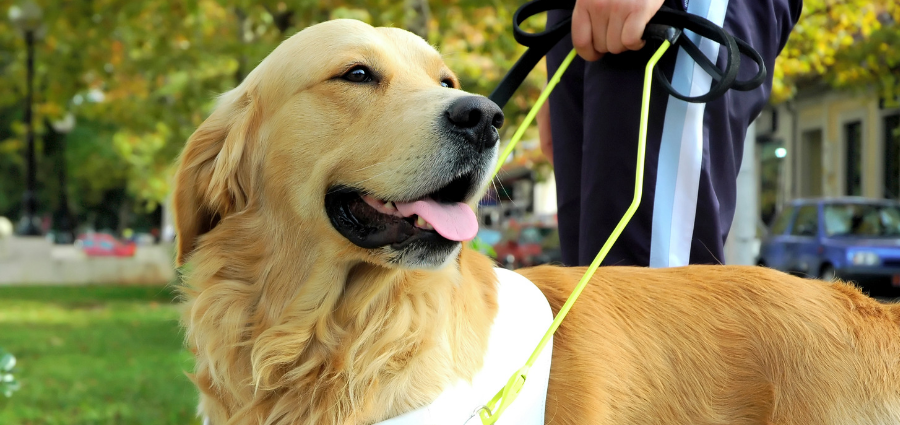Celebrating Assistance Dogs

Assistance dogs, also known as service dogs, are professionally trained and certified dogs that help people with physical, mental, and emotional disabilities. These dogs are the eyes, ears, and protectors for their owners who could not function without them. This year, International Assistance Dog Week falls on August 4th–10th. Join us in celebrating them and giving them a round of “ap-paw-se” for all their hard work.
Assistance Dogs Go Through Intense Training
Assistance dogs are definitely a form of the canine elite. They are disciplined, intelligent and compassionate. Often selected as puppies for the noble purpose of becoming assistance dogs, these pups begin learning their trade from the very beginning.
Assistance Dogs Are Capable of Anything
Typically, there is no limit to what assistance dogs can help their owner with. At minimum, assistance dogs need to be able to assist their owner with two or three tasks. These can be things as important as helping their owner safely cross the street to getting help if their owner has a seizure or more simple tasks such as helping their owner take out a load of laundry or opening the door for a visitor.
Assistance dogs are being used increasingly with owners who have suffered PTSD (post traumatic stress disorder) or abuse. In such cases, assistance dogs intuitively create safety barriers around their owners, enabling them to perform normal, daily tasks like going to the grocery store without suffering from aneixty or a panic episode.
What to Do When You Meet an Assistance Dog
Because assistance dogs help their owners engage in day-to-day functions, it is likely you will see one while going about your business—eating at a restaurant, shopping, visiting a friend at the hospital, etc.
When you see an assistance dog, here is what you should know and what you should do:
• Greet the owner. Do not greet the assistance dog. Speaking to the dog could be distracting.
• Ask the owner if you can pet their assistance dog if you want to, but do not be offended if they say ‘no’. After all, when the dog is out with their owner, they are at work and need to remain focused.
• If your pet is with you, keep them away from the assistance dog. Though well-trained, assistance dogs are animals and could get upset if overstimulated by another dog or animal.
• Follow the assistance dog if it is alone. A lone assistance dog is often a signal that its owner is in trouble and needs help.
How to Support Assistance Dogs
Your instinct to celebrate assistance dogs may be to pet and to provide effusive positive feedback assistance dogs you meet on the street, a better way to help celebrate assistance dogs is to provide support for assistance dogs programs.
Here are things you can do:
• Find an assistance dog training program that you support and make a donation.
• Find and donate to a fundraiser for an income-restricted person in need of an assistance dog. Many people who need service dogs cannot get them due to lack of adequate insurance or to financial instability.
• Spread the word about how to interact with and how to celebrate assistance dogs on social media.
• Volunteer time or donate food or supplies to an assistance dog training program in your area.
While all dogs are incredible and deserve to be celebrated, assistance dogs play a vital and important role to their owners and—thus—in our society. Celebrate them by learning more about the incredible work that they do, by educating yourself and others on how to interact with them and by supporting causes the help assistance dogs find the people who need them.
We at Wellness Pet Food believe assistance dogs (and all dogs) deserve to be celebrated every day of every week year in and year out, which is why all of our foods, snacks and treats are made using original recipes comprised of natural ingredients. Celebrate your dog the Wellness way.




